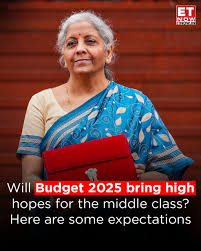Union Budget 2025: Auto Sector Calls for Measures to Boost EV Adoption and Global Competitiveness
As India strives to become a global leader in the automotive industry, the Union Budget 2025 holds significant importance for stakeholders in the sector. With the push towards clean energy and sustainable transportation, the auto industry is seeking bold reforms and incentives to accelerate the adoption of battery electric vehicles (BEVs) and enhance the sector’s global competitiveness.

Key Expectations from the Union Budget
- Enhanced EV Incentives:
Industry players are looking for an extension and expansion of schemes such as the Faster Adoption and Manufacturing of Electric Vehicles (FAME) initiative. Increased subsidies for both consumers and manufacturers would make BEVs more affordable and appealing, driving demand in urban and rural markets alike. - Reduction in GST and Import Duties:
A reduction in GST rates on EVs, batteries, and charging infrastructure, as well as a review of import duties on critical components, could help reduce the cost of production and encourage innovation within the domestic market. - Charging Infrastructure Development:
To foster EV adoption, robust charging networks are essential. The auto sector hopes for financial allocations and public-private partnerships to build widespread, fast-charging infrastructure across highways, cities, and rural areas. - Battery Manufacturing and Recycling Support:
With batteries being a major cost component for EVs, incentives for local battery manufacturing and efficient recycling systems are critical. Support for R&D in advanced battery technologies can further position India as a global hub for EV innovation. - Green Manufacturing Initiatives:
Encouraging automakers to adopt green manufacturing processes through tax incentives and subsidies will align India’s automotive sector with international sustainability standards, helping attract foreign investments. - Export Promotion Measures:
Streamlined export policies and financial incentives can help Indian automakers compete globally, particularly in emerging EV markets. Strengthening global trade partnerships will be vital for growth.

Why It Matters(Union Budget)
The transition to electric mobility is not just about environmental benefits but also about economic opportunities. By fostering a competitive EV ecosystem, India can reduce its dependence on fossil fuels, lower air pollution levels, and create new jobs across various sectors.
As Finance Minister presents the Union Budget 2025, it will be interesting to see how the government addresses the needs of the auto sector to drive India’s journey toward sustainable and globally competitive automotive growth. With the right measures, India can emerge as a global leader in EV manufacturing and adoption.
other news: Made-in-India Suzuki Jimny Five-Door Debuts in Japan Tata Sons Seeks CCI Approval for Additional 10% Stake in Tata Play







